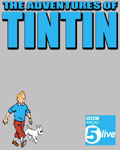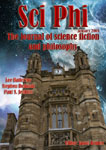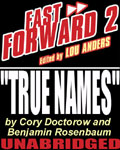
 By the sheer volume of H.G. Wells stories airing this coming week on BBC Radio 7 you’d might think it was H.G. Wells who had just died, and not Arthur C. Clarke! But no, BBC7 is planning on playing some Clarke for they announced the following: “As a tribute to Arthur C. Clarke we will be repeating these programmes [four readings commisioned and broadcast in 2007] in the near future.” Good on them! Until then…
By the sheer volume of H.G. Wells stories airing this coming week on BBC Radio 7 you’d might think it was H.G. Wells who had just died, and not Arthur C. Clarke! But no, BBC7 is planning on playing some Clarke for they announced the following: “As a tribute to Arthur C. Clarke we will be repeating these programmes [four readings commisioned and broadcast in 2007] in the near future.” Good on them! Until then…
In typical Wellsian fashion (time travel used to be fantasy until Wells got his mitts on it) this 1901 tale transforms a Fantasy concept (the existence of past lives) into a SF theme, casting a future life (as of a dream), that is both vivid and recognizable – written before both of the World Wars it depicts a world in which tanks, airplanes and something that sound like a nuclear weapon exists…
 A Dream Of Armageddon
A Dream Of Armageddon
By H.G. Wells; Read by Robert Bathurst
2 Parts – Approx. 2 Hours [ABRIDGED?]
Broadcaster: BBC7 / The 7th Dimension
Broadcast: Monday and Tuesday at 6.30pm and midnight
A tale of an advanced civilisation descending into mindless war was an uncannily close prediction of the horrors of WW2 when it was written in 1901.
This one, sounding more like Lovecraft than it has any right to, should be a treat for sailor and land lubber alike…
 The Sea Raiders
The Sea Raiders
By H.G. Wells; Read by Robert Bathurst
1 Broadcast – Approx. 30 Minutes [ABRIDGED?]
Broadcaster: BBC7 / The 7th Dimension
Broadcast: Wednesday at 6.30pm and 12.30am
Another classic tale of high adventure by sci-fi master H. G. Wells. Strange monsters from the deep start terrorising the horrified residents of Devon’s coastline.
Yep, you’ll find Wells was responsible for most of the well worn tropes of SF – this next one is described as the inspiration for the Star Trek (original series) episode “Wink of an Eye”…
 The New Accelerator
The New Accelerator
By H.G. Wells; Read by Robert Bathurst
1 Broadcast – Approx. 30 Minutes [ABRIDGED?]
Broadcaster: BBC7 / The 7th Dimension
Broadcast: Thursday at 6.30pm and 12.30am
A friend of H.G. Wells is on the verge of making a scientific breakthrough which promises to revolutionise human life – so the two friends decide to road-test the new drug – with exciting but dangerous consequences.
And a Brian Aldiss tale, first broadcast back in May 2007…
 Song Of The Silencer
Song Of The Silencer
By Brian Aldiss; Read by Nigel Anthony
1 Broadcast – Approx. 30 Minutes [ABRIDGED?]
Broadcaster: BBC7 / The 7th Dimension
Broadcast: Friday at 6.30pm and 12.30am
To establish universal peace, scientists have constructed a massive computer designed to mimic human thought and act as a guide to world decision making. But will flicking the switch signal the end of the human race?
First broadcast on BBC Radio 5 in 1993, here’s a treat of an audio drama…
 The Adventures of Tintin
The Adventures of Tintin
Based on the Hergé comic book series; Performed by a full cast
6 Broadcasts – 3 Hours [RADIO DRAMA]
Broadcaster: BBC7
Broadcast: Monday to Monday at 9am, 8pm and 1am
Famous boy reporter Tintin has been covering the return of the Sanders-Hardiman expedition from Peru. When all the participants fall mysteriously ill, Tintin is compelled to investigate.
All of the above will be available on the “listen again” page the day after they air.
Posted by Jesse Willis






